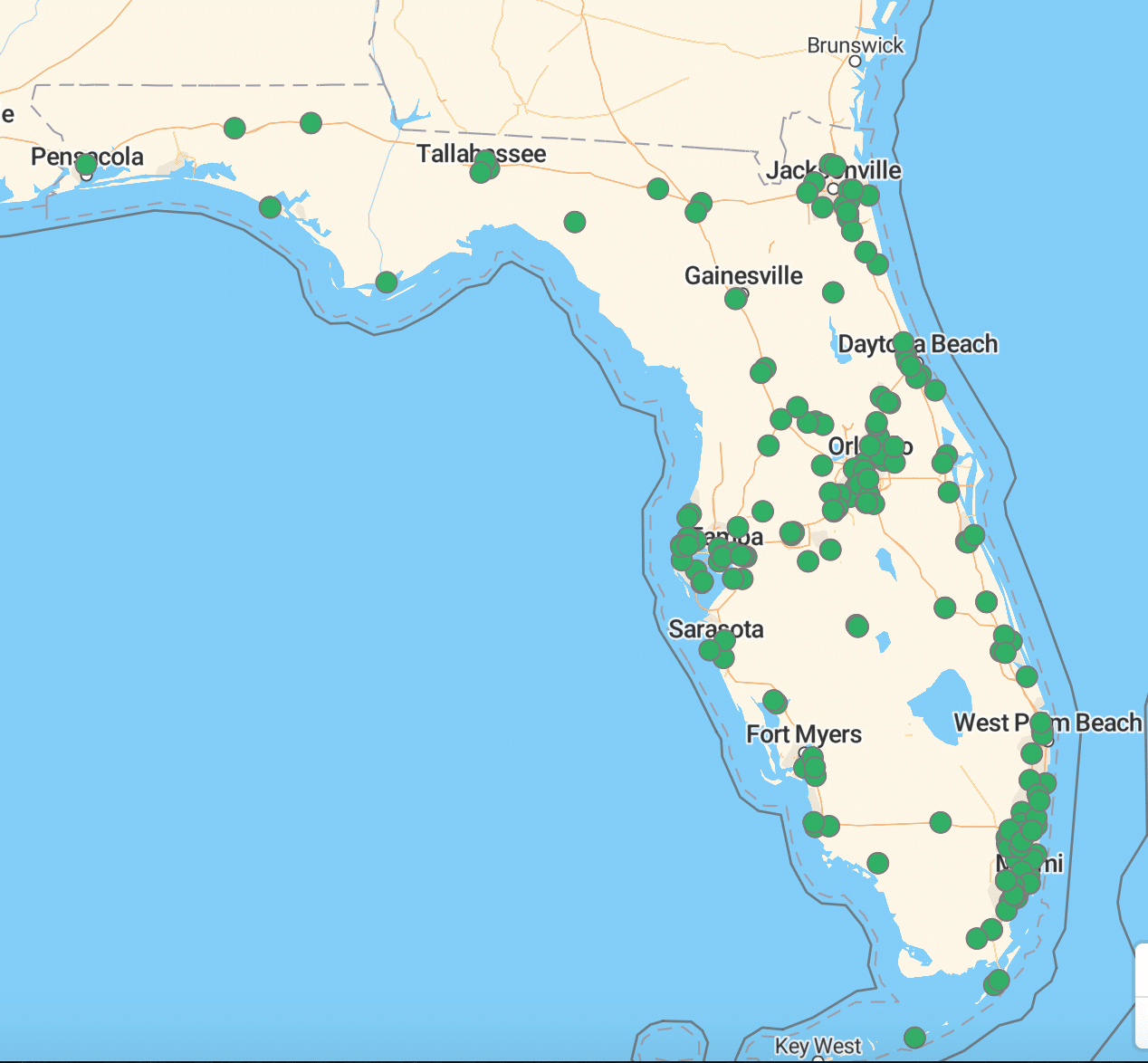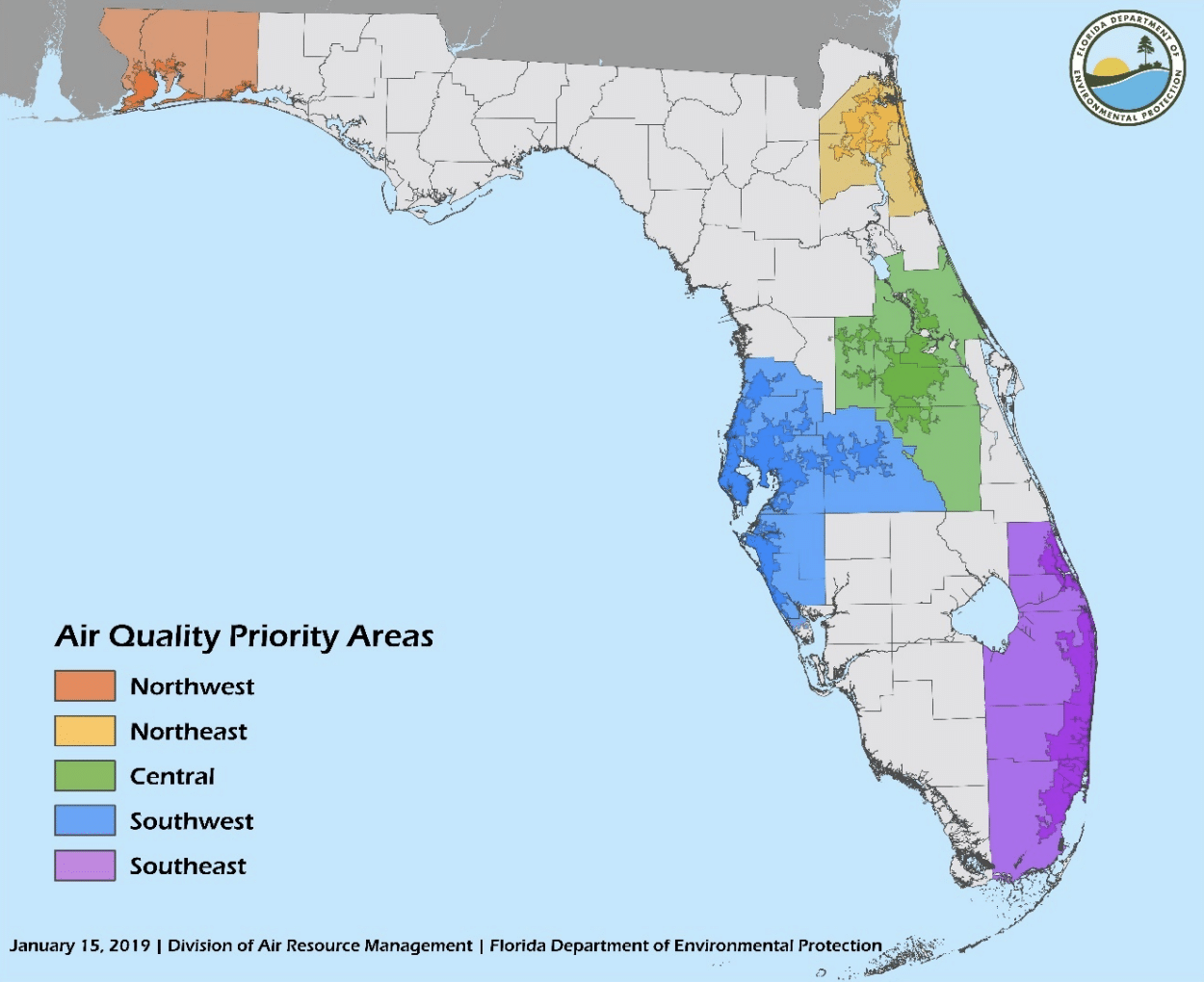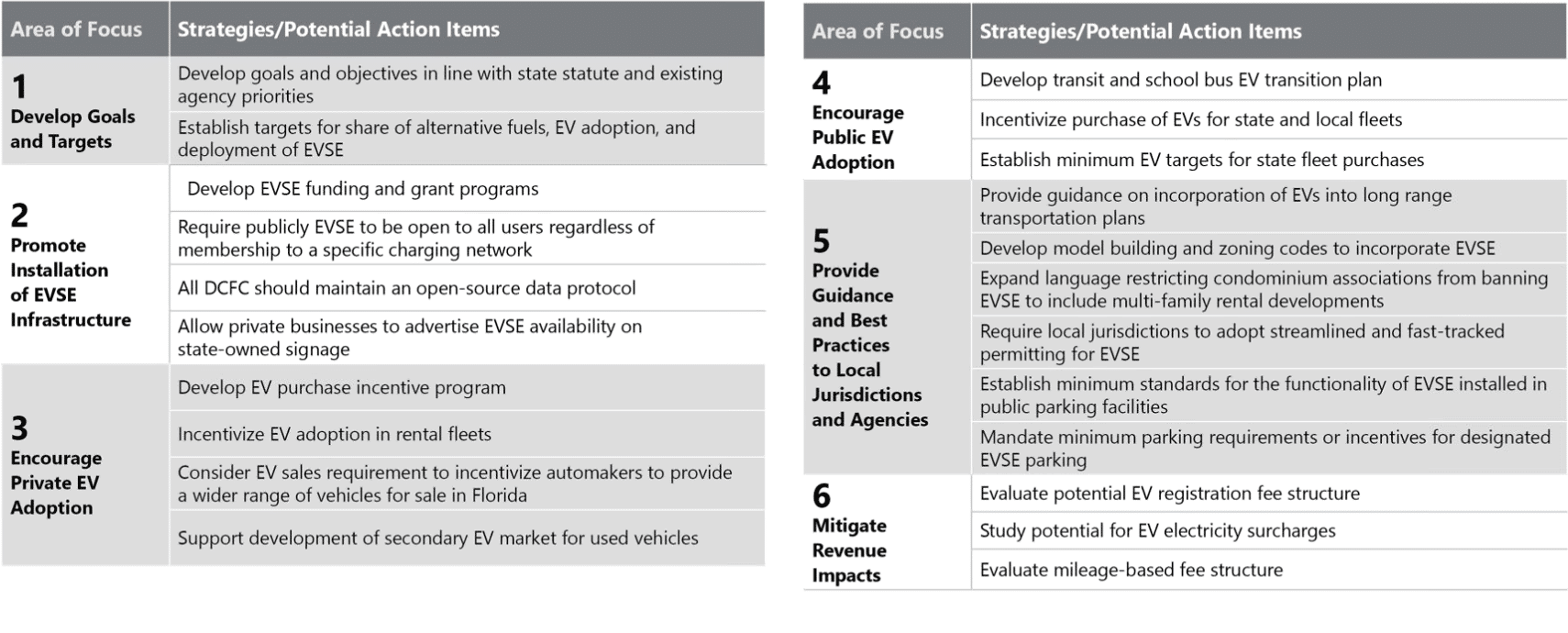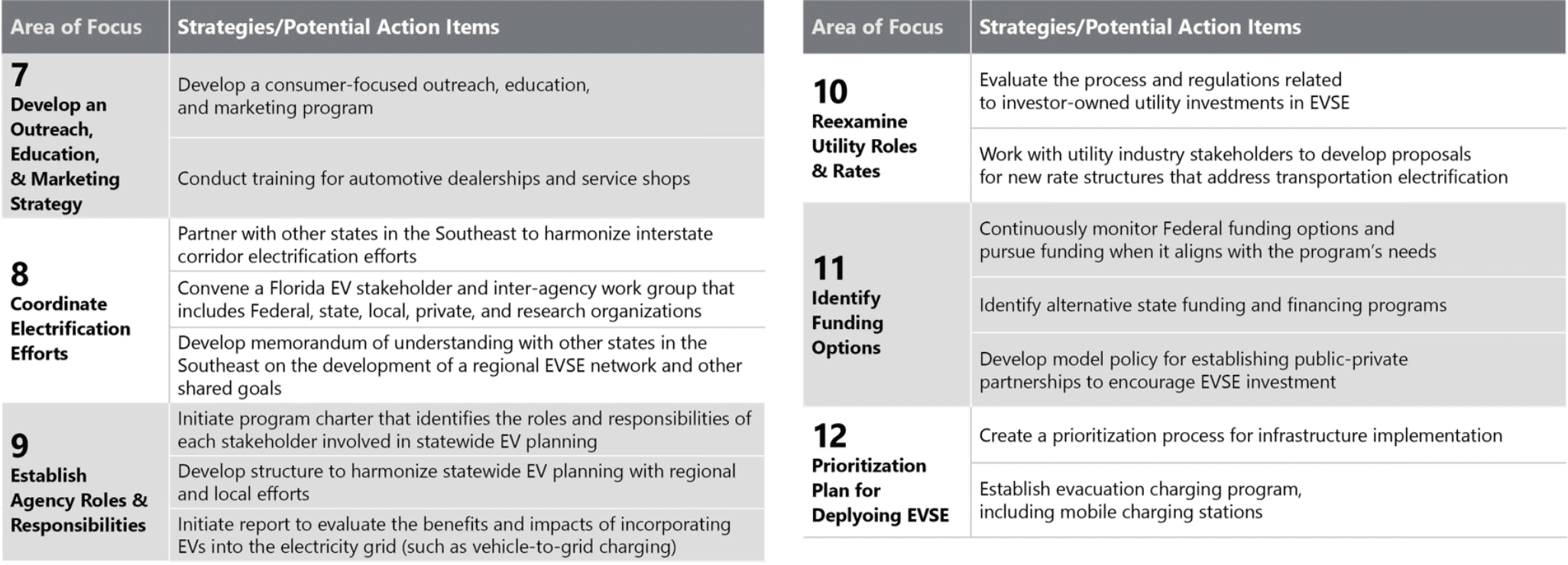One way to mark the passage of time is a season. In the North Atlantic, hurricane season started on June 1, 2020, and will end on Nov 30, 2020. This has been a historically relentless season with 29 named storms, more than any other since we’ve been keeping record. During that same span of time, amidst all the other chaos of 2020, Florida has managed to set a course toward transportation electrification. This is fitting, especially because electric vehicles (EVs) eliminate one of the biggest sources fueling both ground-level air pollution and the climate crisis: tailpipe emissions from transportation.
A Funding Opportunity for Electric Transportation Charging Infrastructure
The Florida Department of Environmental Protection (DEP) has announced the Phase 2 Request for Applications (RFA) for Direct Current (DC) fast-charging Electric Vehicle Service Equipment (EVSI). This funding opportunity includes 32 DC fast-charging station sites along Interstates 10, 75, 95, and 4, specified by exit number. Eligible applicants include governmental entities, electric utilities, businesses, not-for-profit organizations, and partnerships. Details about the RFA can be viewed here. These infrastructure installations will support broader EV adoption, facilitate long-distance traveling, and advance evacuation routes. The application deadline to access these funds to install fast-charging infrastructure is January 8, 2021. Eligible applicants include governmental entities, electric utilities, businesses, not-for-profit organizations, and partnerships.
In July 2016, Volkswagen (VW) agreed to a multiple-part settlement with the Environmental Protection Agency (EPA) due to the installation of ‘defeat devices’ on their diesel engines in violation of the Clean Air Act. Florida designated DEP to be the lead agency to distribute the state’s $166 million dollar portion of the Environmental Mitigation Trust funding coming out of this settlement. The Draft Mitigation Plan released in July 2019 calls for the maximum-allowable 15% carveout for EV charging infrastructure, as well as 15% for DERA funds, and 70% for school, transit, and shuttle buses. SACE and our membership actively advocated for the 15% carveout for EV charging infrastructure, which amounts to about $25 million dollars in funding.
The DEP announced awardees for Phase 1 of DC fast-charging electric vehicle charging infrastructure (EVCI) funding opportunity on July 10, 2020. View the list of Grant Awardees by Highway Segment. This $8.6 million dollar release of mitigation funds was awarded to 27 projects to install 74 chargers along Interstates 4, 75, 95, 275, and 295.

A Funding Opportunity for Electric School Buses
Additionally, from the same VW settlement, DEP announced a $57 million funding opportunity for the purchase of electric school buses to replace eligible diesel school buses. Eligible school districts are designated in the Beneficiary Mitigation Plan and were prioritized based on emissions inventories, air monitoring data, environmental justice indicators, and population data. School districts must provide at least a 25 percent cost-share. The deadline to submit the application, linked here, is Friday, December 18, 2020. Eligible applicants include the 23 school districts in the Air Quality Priority Areas. View the Beneficiary Mitigation Plan map below to see if your county is eligible.

Florida’s Electric Vehicle Master Plan
Additionally, the Florida Department of Transportation (FDOT) held a stakeholder webinar on November 12. SACE participated as a stakeholder, offering feedback on the Electric Vehicle Master Plan. The plan, born out of Senate Bill 7018 and signed earlier this year by Governor DeSantis, requires FDOT in conjunction with the Florida Public Service Commission (PSC) and the Florida Office of Energy (OOE) to report findings and recommendations. The three primary goals of the plan are to:
- Support both short-range and long-range electric vehicle travel;
- Encourage the expansion of electric vehicle use in this state; and
- Adequately serve evacuation routes in this state.
The interim plan, due to the Governor’s office by December 1, 2020, includes the following recommendations:


Public Service Commission Findings Feed Into Master Plan
The Florida PSC held a non-docketed EV-related workshop on October 21, where stakeholders from the utility industry, EV industry, and environmental organizations answered questions from PSC staff related to:
- Projections of vehicles and charging needed;
- Strategies for developing the supply of electric vehicle service equipment; and
- Regulatory structures needed for the delivery of EVs and EVSE.
SACE was represented by our Electric Transportation Director, Stan Cross. There was considerable alignment among all the participants with the answers provided to the questions. The findings of the workshop will be published in a report by February 2021 and will be folded into the aforementioned Master Plan being written by FDOT.
Putting It All Together
The combination of DEP funding EV charging infrastructure to the maximum-allowable amount (15%) and the FDOT (preliminary) considering broad recommendations demonstrates the culmination of advocacy for electric transportation. The work of SACE and other stakeholders collectively is helping decision-makers understand the significant economic and health value electric transportation systems provide. The final Master Plan is due on July 1, 2021, and SACE will continue to engage in the process and advocate for the best possible final product.
To stay connected with our electric transportation work, join our network.
Learn more about how Florida stacks up against other Southeastern states and the nation by reading our brief, “Transportation Electrification in Florida: A Deep Dive Into Travel Patterns & Statistics Across the EV Sector” recently published by Atlas Public Policy in conjunction with SACE.



